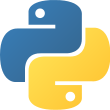Demystify causal inference and casual discovery by uncovering causal principles and merging them with powerful machine learning algorithms for observational and experimental data
Purchase of the print or Kindle book includes a free PDF eBook
Key Features
- Examine Pearlian causal concepts such as structural causal models, interventions, counterfactuals, and more
- Discover modern causal inference techniques for average and heterogenous treatment effect estimation
- Explore and leverage traditional and modern causal discovery methods
Book Description
Causal methods present unique challenges compared to traditional machine learning and statistics. Learning causality can be challenging, but it offers distinct advantages that elude a purely statistical mindset. Causal Inference and Discovery in Python helps you unlock the potential of causality.
You'll start with basic motivations behind causal thinking and a comprehensive introduction to Pearlian causal concepts, such as structural causal models, interventions, counterfactuals, and more. Each concept is accompanied by a theoretical explanation and a set of practical exercises with Python code.
Next, you'll dive into the world of causal effect estimation, consistently progressing towards modern machine learning methods. Step-by-step, you'll discover Python causal ecosystem and harness the power of cutting-edge algorithms. You'll further explore the mechanics of how “causes leave traces” and compare the main families of causal discovery algorithms.
The final chapter gives you a broad outlook into the future of causal AI where we examine challenges and opportunities and provide you with a comprehensive list of resources to learn more.
What you will learn
- Master the fundamental concepts of causal inference
- Decipher the mysteries of structural causal models
- Unleash the power of the 4-step causal inference process in Python
- Explore advanced uplift modeling techniques
- Unlock the secrets of modern causal discovery using Python
- Use causal inference for social impact and community benefit
Who this book is for
This book is for machine learning engineers, data scientists, and machine learning researchers looking to extend their data science toolkit and explore causal machine learning. It will also help developers familiar with causality who have worked in another technology and want to switch to Python, and data scientists with a history of working with traditional causality who want to learn causal machine learning. It's also a must-read for tech-savvy entrepreneurs looking to build a competitive edge for their products and go beyond the limitations of traditional machine learning.
Table of Contents
- Causality – Hey, We Have Machine Learning, So Why Even Bother?
- Judea Pearl and the Ladder of Causation
- Regression, Observations, and Interventions
- Graphical Models
- Forks, Chains, and Immoralities
- Nodes, Edges, and Statistical (In)dependence
- The Four-Step Process of Causal Inference
- Causal Models – Assumptions and Challenges
- Causal Inference and Machine Learning – from Matching to Meta-Learners
- Causal Inference and Machine Learning – Advanced Estimators, Experiments, Evaluations, and More
- Causal Inference and Machine Learning – Deep Learning, NLP, and Beyond
- Can I Have a Causal Graph, Please?
- Causal Discovery and Machine Learning – from Assumptions to Applications
- Causal Discovery and Machine Learning – Advanced Deep Learning and Beyond
- Epilogue
 Language
Language
 Reading time
Reading time
 What you will learn
What you will learn
 Author
Author
 Published
Published
 Packages you will be introduced to
Packages you will be introduced to
